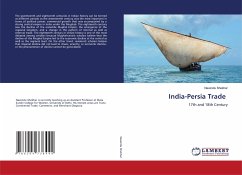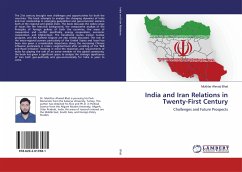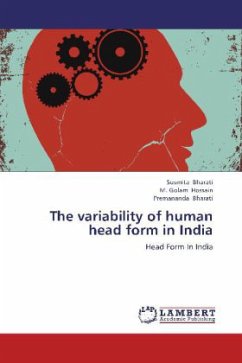
India-Persia Trade
17th and 18th Century
Versandkostenfrei!
Versandfertig in 6-10 Tagen
40,99 €
inkl. MwSt.

PAYBACK Punkte
20 °P sammeln!
The seventeenth and eighteenth centuries in Indian history can be termed as different periods as the seventeenth century was the most important in terms of political power, commercial growth that was accompanied by a strong central empire in India under the Mughals. The eighteenth-century saw the decline of the erstwhile Mughal Empire, the emergence of the regional kingdom, and a change in the pattern of internal as well as external trade. The eighteenth century in Indian history is one of the most debated among scholars because Mughal-centric scholars believe that the decline of the Mughal Em...
The seventeenth and eighteenth centuries in Indian history can be termed as different periods as the seventeenth century was the most important in terms of political power, commercial growth that was accompanied by a strong central empire in India under the Mughals. The eighteenth-century saw the decline of the erstwhile Mughal Empire, the emergence of the regional kingdom, and a change in the pattern of internal as well as external trade. The eighteenth century in Indian history is one of the most debated among scholars because Mughal-centric scholars believe that the decline of the Mughal Empire led to the economic decline at the central as well as the regional level. On the other hand, revisionist scholars believe that imperial decline did not lead to chaos, anarchy, or economic decline, or the phenomenon of decline cannot be generalized.












